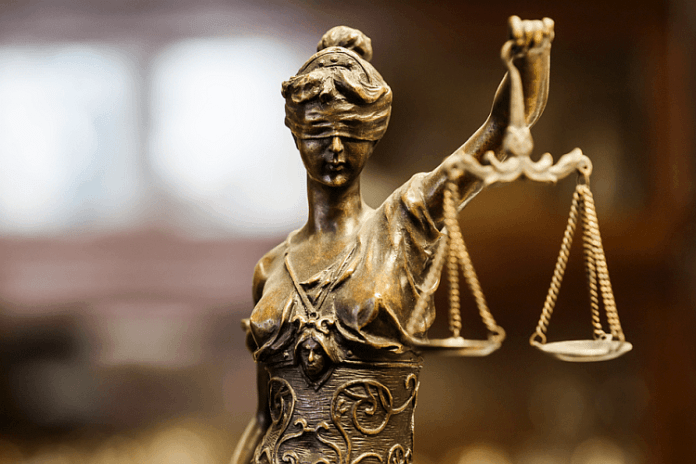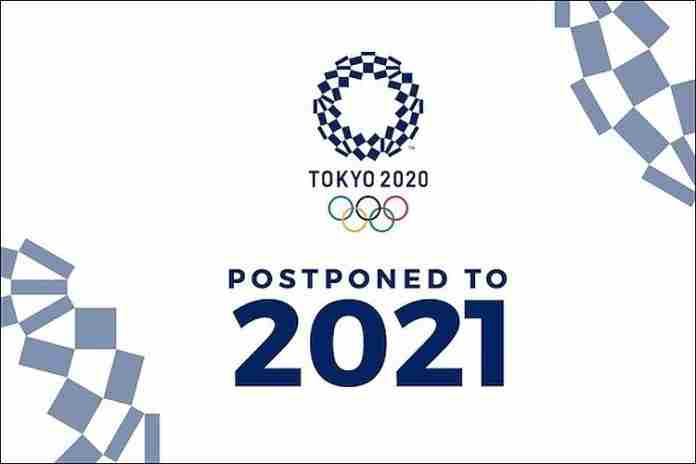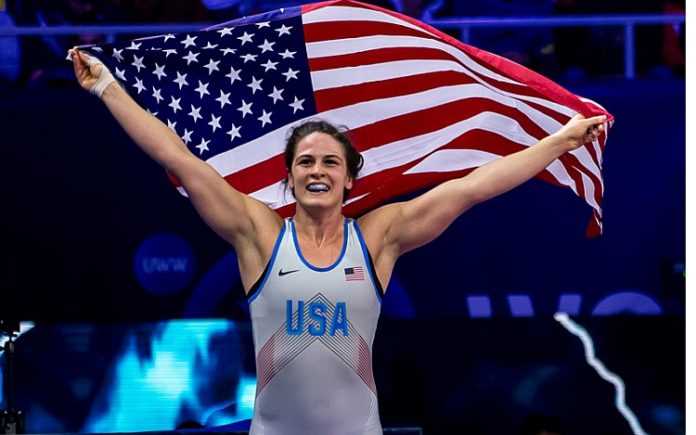(★ Friends: Thank you once again for your 69 contributions, to cover our semi-annual server and support costs. The next bill comes in December. If you would like to help, please donate here. Your inspiring enthusiasm is the reason this site continues. ★)
(● For our 526-event International Sports Calendar from October 2020 to June 2021,
by date and by sport, click here! ●)
The U.S. Olympic & Paralympic Committee leadership underscored its commitment to an all-out charm offensive to all of its critics, announcing a lawsuit against its insurers in the Larry Nassar matter and waving off any concerns about any possibility of suspension if S. 2330 becomes law during the following week.
In a teleconference with reporters, USOPC Board Chair Susanne Lyons explained:
“We announced today that we are going to be filing our own lawsuit against our insurance carriers as part of the gymnastics mediation to achieve fair and just resolution for the victims and the survivors. For nearly a year and a half, we have actively participated in the mediation process and because the insurance companies in our belief, have not lived up to their contractual obligations to the USOPC, including not acting fairly and in good faith and in exploring whether a reasonable settlement could be achieved, we were forced to file this lawsuit.
“And the lawsuit seeks to have a court resolve the issues related the insurer’s obligations as part of our efforts to achieve a fair resolution for the victims and survivors.
“I want to say that we have a deep respect and empathy for the survivors and victims of abuse. They have shown tremendous bravery and strength in the most difficult of circumstances and we deeply regret the amount of time this complicated mediation has taken and we want nothing more than a swift and fair resolution to give some closure to the survivor community.”
It is not at all clear whether this suit will speed up anything, but it reinforces what is now effectively a joint position of USA Gymnastics, the USOPC and the Survivors Committee that the insurers should pay whatever is being asked by the survivors. Lyons added later:
“This is not about the USOPC’s financial condition. It’s about getting justice, appropriate justice for the survivors and we have insurance for just these types of situations and we’ll just continue to play out this mediation and hope that we can get to a timely settlement so that the survivors can have some closure.”
USOPC Chief Executive Sarah Hirshland acknowledged that S. 2330 (the “Empowering Olympic, Paralympic and Amateur Athletes Act of 2020”) as written could be problematic, but waved off any immediate concerns:
“It’s important to understand, the United States Olympic & Paralympic Committee is a federally-chartered organization and as such, Congress and the Federal government has authority and that has existed for some time. This bill does provide a provision that would allow Congress to essentially unseat the USOPC Board. Should Congress take such an action, we do understand that the IOC may consider that a violation of the IOC Charter. But the bill itself as it’s written, without that action being taken, is not a violation of the Charter.
“So it does create a provision that frankly, the Federal government likely has that authority and had that authority even before the bill, but we are acutely aware and we’ve had ample conversation between our organization, the IOC and members of Congress on that topic as the bill was being drafted. And we all understand the implications of that should the Federal government make a decision to take action.”
This is hardly a conclusive answer, given that the United States Olympic Committee existed without a Federal Charter at its inception in 1894 and did not receive Federal recognition until 1950. But the key is Hirshland’s comment that discussions with the IOC have taken place and Lausanne may have decided to live with this bill given the political situation at present in the U.S. — which requires the USOPC to accept S. 2330 as is — and move on. But that stance would be completely contrary to the IOC’s current position about potential new laws in Italy, and prior situation in India and Kuwait, among others. Also true: the IOC has more pressing matters on its plate.
Hirshland also noted the ongoing work that places athletes front and center – just as the Congress wants it – on two key issues: protests and demonstrations at the Olympic Games and the fight against doping:
● On the USOPC response to the IOC Athletes’ Commission request for input on Rule 50 against demonstrations, Hirshland explained:
“You’re all familiar with the Team USA Council on Racial and Social Justice. That Council has formed with four pillars of working groups; perhaps the most urgent and the most visible at the moment is the work that they’re doing around Rule 50 itself and the protests and demonstrations focus.
“That group is due to bring their recommendations forth to us by the end of the month, at which point, as we said and as we committed to back in June, it is our motivation, our intent and our desire to remove barriers, to change the rules and to empower Black voices to be heard. We are eagerly awaiting the recommendations of that Council and then we’ll take actions according to those recommendations once we have them, including advocating on a global basis, which we said back in June.”
What appears to be key here is that these recommendations will be passed on as is to the IOC and not further reviewed by the USOPC Board. And Hirshland is promising to lobby for the recommendations, whatever they are.
● On the anti-doping front, Hirshland made a point to mention expanding contact with the U.S. Office of National Drug Control Policy, which has been so critical of the World Anti-Doping Agency and threatening not to pay the U.S. dues for the World Anti-Doping Agency.
WADA, in its detailed response to the ONDCP broadside, pointed out that the U.S. did not even attend the last meeting of the Americas continental anti-doping association and put up no candidates for the WADA Executive Committee. This did not go unnoticed in Colorado Springs; said Hirshland:
“[We’ve] put forth nominations of several athletes to help serve on global [anti-doping] committees. Some of those are sort of sub-committees of WADA, some in the Athlete Commission itself. We’re hopeful for those nominations to come through and for our athletes to be selected in these roles. We’re proud of the athletes for being willing to step up and serve in this global capacity. It is a time commitment and they, as you all know, do this as volunteers. But we’re very committed to the effort and to making sure that clean sport is a top priority and it’s something that our athletes enjoy. It is simply unacceptable to be in any other place.”
Hirshland was also asked about support for the Rodchenkov Anti-Doping Act of 2019 (H.R. 835), which has passed the House. Both WADA and the IOC have expressed concerns about this legislation, which could create the extra-territorial jurisdictional reach that allowed the U.S. Department of Justice to prosecute misconduct within FIFA. Said Hirshland, again showing solidarity with the Congress and the U.S. Anti-Doping Agency:
“We support the Act. We’ve also been in conversations on this with the IOC, with USADA, with our own community and as I said at the outset … we believe strongly that we need to do everything we can to promote and enforce clean sport. We believe the Rodchenkov Act is a step in helping to do that.”
Lyons also emphasized the passage of the third phase of governance reform, which requires athlete representation of at least 33 1/3% of the board and committees of National Governing Bodies (another Congressional priority).
Hirshland announced that the U.S. Olympic Training Centers in Colorado Springs and Lake Placid have been re-opened, with 288 athletes now resident. Substantial medical procedures are in place and the coronavirus incidence has so far included just one positive test on the campuses.
Substantial discussions about the financial pressures on collegiate sports took place. Hirshland reviewed the outreach work being undertaken now:
“[Our] position is needing to do more and needing to make sure we open our eyes to new and creative solutions; frankly, to work more closely with our National Governing Bodies and the NCAA programs. And that’s what this [Collegiate Sports Sustainability] Think Tank is going to explore: opportunities to create better connections between the National Governing Bodies, the USOPC and the collegiate programs around what many of us affectionately refer to as ‘Olympic sports’ at the collegiate level. …
“Certainly, the hope is for better alignment and better integration. You know, the National Governing Bodies in those sports that are also NCAA sports, there is absolutely overlap in the work that they are doing, there’s enormous overlap that each of our respective organizations are serving and so the first goal is, let’s look at where the integration is, can we find opportunities to be creative and can we find opportunities for efficiencies, can we find opportunities to create better scale together than separately. Historically, we’ve operated relatively separately.”
Hirshland also stated that the financial plan undertaken earlier in the year is holding up well and that fundraising goals are expected to be met. On the preparations for Tokyo, the work continues, but what will actually happen is anyone’s guess, as the situation changes daily.
Based on the comments from Lyons and Hirshland, the USOPC would dearly love to return to thinking more about working with athletes on the road to Tokyo and Beijing, and less about external threats from the Congress, the White House ONDCP and other loud voices calling for its destruction. Based on the much-welcomed increases in current and former athlete representation at all levels of the U.S. Olympic Movement, we may soon see arguments over its future be between the athletes. Who wins then?



























